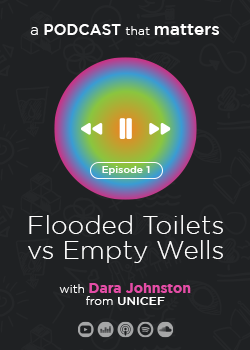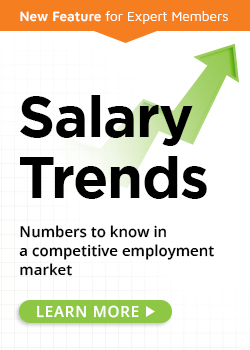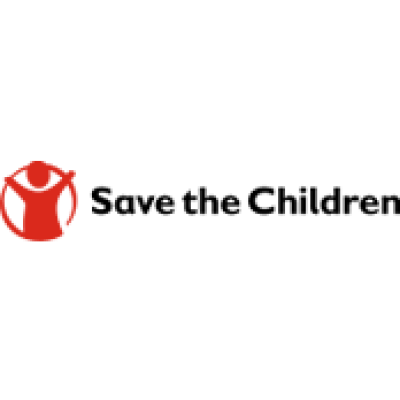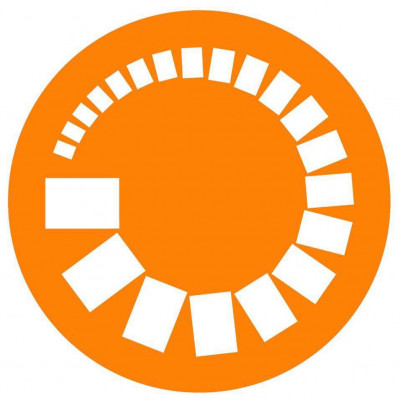Details
Description
Five positions.
Background
The United Nations Entity for Gender Equality and the Empowerment of Women (UN Women), grounded in the vision of equality enshrined in the Charter of the United Nations, works for the elimination of discrimination against women and girls; the empowerment of women; and the achievement of equality between women and men as partners and beneficiaries of development, human rights, humanitarian action and peace and security.
In line with UN Women Global Strategic Plan (2022-2025), and its Country Strategic Note (2019-2022), in Turkey UN Women works towards three overarching goals:
1. Women lead, participate in, and benefit equally from governance systems.
2. All women and girls live a life free from all forms of violence.
3. Women and girls contribute to and have greater influence in building sustainable peace and resilience and benefit equally from the prevention of natural disasters and conflicts and humanitarian action.
Towards the second goal, In Turkey, UNICEF, IOM, UNFPA, UNHCR, and UN Women have been working together on the “UN Joint Programme for the Prevention of CEFM” (the Joint Programme) since 2018, with the support of the Swedish International Development Cooperation Agency (SIDA). The First Phase of the Joint Programme has ended in September 2021, resulting in increased national synergies in Child Early and Forced Marriage (CEFM) prevention through: advocacy on the international and national normative framework; data generation and analysis; technical support to national and provincial coordination mechanisms and action plans on CEFM; and community mobilization with a focus on girls’ empowerment and male engagement.
In the Second Phase, to be implemented by UNICEF, UNFPA, and UN Women, with consultative support from IOM and UNHCR, the Joint Programme will draw on the experience and lessons learned during the implementation of the First Phase (including adaptation of programme activities in the context of COVID-19) to continue to address the complex issue of CEFM. The Joint Programme will continue to be a key platform to emphasize that positive gender norms, investment in girls’ and women’s empowerment, and communication for gender equality are now even more crucial for Turkey.
The Second Phase of the Joint Programme is fully aligned with the UN Sustainable Development Cooperation Framework (UNSDCF) for Turkey covering 2021 – 2025, which outlines key outputs related to the elimination of violence against women and girls (VAWG) including CEFM.
While UN Women Turkey will be contributing to the achievement of national level policy making and advocacy, it will provide a comprehensive list of services at the local level in the selected project provinces (Adana, Edirne, Gaziantep, Izmir and Kocaeli) where the prevalence of CEFM is higher than the national average in Turkey. The project will have a specific focus on provinces that have high Roma populations. The list of activities to be conducted at the local level are:
1. Support to the development of local VAW including CEFM Action Plans
2. Support to the development of the capacities of service delivery of the CSOs including Women’s organizations and public service providers, providing mentorship and supervision at the local level on systematic identification, referral, case management and response to CEFM cases, and advocacy skills
3. Provision of trainings to government institutions, including SONIMs, SCCs, MoJ, and local authorities
4. Organization of community-based activities including women’s empowerment and men and boys’ engagement, with a special focus on youth engagement
5. Development and dissemination of training modules and advocacy materials
6. Participation to provincial monitoring activities and meetings on CEFM with civil society and government institutions, as well as VAW-CEFM related coordination meetings in the province
7. Awareness-raising amongst community members including children and youth, especially girls and women, as survivors, parents, and community members in targeted areas on CEFM
In this context, Under the Joint Programme on the Prevention of CEFM, UN Women Turkey office intends to contract five National Local Project Consultants under the direct supervision of the Project Manager to contribute to and support the Project team in the design and delivery of local level activities listed above in one of the project provinces (Adana, Edirne, Gaziantep, Izmir or Kocaeli).
Duties and Responsibilities
Under the direct supervision of Project Coordinator and overall guidance of UN Women Programmes Manager, the National Local Project Consultants will be responsible for:
Supporting the national and local surveys and administrative data collection and analysis on CEFM, VAW and VAWG in Adana, Edirne, Gaziantep, Izmir or Kocaeli
Developing and disseminating evidence-based advocacy materials and knowledge products, using Phase 1 and Phase 2 products in Adana, Edirne, Gaziantep, Izmir or Kocaeli
Supporting local platforms, government institutions and CSOs to have improved capacity to deliver prevention, response, advocacy, and monitoring services in line with international standards
Developing and strengthening local networks through consultation meetings
Developing/mobilizing/supporting a multi-sectoral CSO network including youth organizations, for advocacy and monitoring of CEFM
Delivering capacity-building trainings, mentorship and supervision for CSOs, based on their needs, about their effective and systematic identification, referral, case management and response to CEFM cases, and advocacy skills
Attending provincial monitoring activities and meetings on CEFM, as well as VAW-CEFM related coordination meetings in the province on behalf of UN Women
Supporting partner selection operational and programmatic processes of UN Women related to the Joint Programme, including preparation of necessary documentation
Providing direct support to UN Women Programme Management team in organizing advocacy and communication events and maintaining the communication with the local stakeholders.
Duration of the assignment is from 01 March 2022 to 31 March 2023 (Up to 120 days per consultant). The Consultants are expected to spend up to 120 working days on a non - consecutive basis throughout the assignment. During assignment’s related missions, the Consultants may use the facilities of the office (i.e., internet access, printing, copying, local phone calls, etc.). However, they are expected to use their own personal computer.
Expected Deliverables and Payment Schedule:
The following table summarizes main activities and expected deliverables against targeted delivery deadlines and indicative working days to be invested by the Consultants. The deliverables are clearly dedicated in line with the expected functions as it can be seen in following table.
Activities/Tasks Output (Deliverable) Workdays
up to Target deadline
Conducting a situation analysis including the First Phase of the Joint Programme
Supporting the promotion of involved fatherhood and male engagement in gender equality by developing community-based outreach initiatives, local awareness-raising and advocacy activities, which are specifically targeting men and boys to ensure their engagement in promoting gender equality
Conducting advocacy activities for preservation and strengthening of national legislation and strategies for gender equality, including the prevention of CEFM and elimination of VAW
Supporting the national and local surveys and administrative data collection and analysis on CEFM, GBV and VAWG
Development and dissemination of evidence-based advocacy materials (such as policy briefs, strategy notes, ToT modules and best practices guides) using Phase 1 and Phase 2 products
Supporting local platforms for coordination and monitoring, developing and strengthening local networks through consultation meetings
Provision of capacity building trainings, mentorship and supervision for CSOs (Roma CSOs and women led CSOs) based on their needs, about their effective and systematic identification, referral, case management and response to CEFM cases, and advocacy skills
Provision of technical assistance to CSOs and professional associations in advocacy, review and monitoring of national laws, policies, and legislations
Conducting community-based, youth empowerment activities (developing adolescent health and development modules in a CEFM specific approach, peer trainings, online mentorships, etc.)
Supporting the training of government institutions, including SONIMs, SCCs, MoJ and local authorities by creating a time plan, making appointments, attending meetings
Supporting partner selection operational and programmatic processes of UN Women related to the Joint Programme, including preparation of necessary documentation
Submission of final report including recommendations for improvement for the next steps and the sustainability of the programme
Situation analysis
Inputs for the training modules including ToT guidelines, based on the male perception on CEFM research findings, calendar and communication list for the community-based activities
Work plan and working methodology
Inputs for the communication campaigns
Inputs for the surveys, survey evaluation reports, analysis reports
Policy briefs, strategy notes, ToT modules and best practices guides
Training materials, modules and power point presentations, training reports
Activity reports, meeting minutes
Contact lists
Concept notes, justification notes, RFP, RFQ, cover pages
Final Report
120 days
(Per consultant)
By the end of each month between
1 March 2022 -
31 March 2023
Total Days 120
The mentioned number of working days has been estimated as being sufficient/feasible for the envisaged volume of work to be completed successfully and is proposed as a guideline for the duration of assignment. It cannot and shall not be used as criteria for completion of work/assignment. The Consultants will be supervised by the Project Coordinator and will work closely with the Programmes Manager. The provision of envisaged deliverables approved by the UN Women Project Coordinator shall be the only criteria for Consultants’ work being completed and eligible for payment(s).
Payment Schedule:
The amount paid to the Consultants shall be gross and inclusive of all associated costs such as travel within the duty station, social security, pension, and income tax etc. Payment will be done in separate installments upon delivery of services and monthly timesheets by respective project manager (Project Coordinator of the Joint Programme) no later than at the end of each month as per the above table. The payment shall be affected only if all the deliverables in this TOR and timesheets are submitted to UN Women Project Coordinator within the timeframes stipulated in the TOR and they are approved by UN Women Project Coordinator. Without submission and approval of the deliverables and timesheets, the Consultants shall not receive any payment even if they invest time for this assignment.
Travel:
This assignment is based in the applied project province in Turkey (Adana, Edirne, Gaziantep, Izmir or Kocaeli). One National Local Project Consultant will be located in one of the project provinces. If there emerges any travel need outside of the duty station, UN Women Turkey Office will organize the logistics of the travel and the Consultants will be paid daily substance allowance and terminal fee as per the figures set by UN Women HQ and UN ICSC. The taxi fees for attending the meetings are under the responsibility of the Consultants. All the payments to the Consultants including payment for travels will be processed in Turkish Lira.
Mandatory Courses:
The Consultants shall complete all the mandatory and further required UN courses, training, and modules on time. The certificates shall be submitted to the Hiring Manager.
Please note that the required training courses could vary based on contract content and duration, the nature of the work and inclusion of travel. The Hiring Manager will provide the list of mandatory courses to the Consultant. Hence, the Consultants are obliged to follow the instructions of her/his Hiring Manager upon which training modules to complete and when to complete them.
Key Performance Indicators
Timeliness, responsibility, initiative, communication, accuracy, and quality of the products delivered.
Adherence to UN Women standards and rules.
Keeping up to date with the developments in Turkey on CEFM framework.
Competencies
Core Values:
Respect for diversity
Integrity
Professionalism
Core Competencies:
Awareness and sensitivity regarding gender issues
Awareness and sensitivity regarding violence against women, including CEFM
Creative problem solving
Effective communication
Inclusive collaboration
Stakeholder engagement
Leading by example
Functional Competencies
Ability to consolidate information from multiple sources
Ability to gather and interpret data, reach logical conclusions, and present findings
Ability to work independently as well as in teams
Excellent time management and ability to produce deliverables within agreed deadlines
Knowledge of violence against women and CEFM
Ability to communicate sensitively, effectively, and creatively across different constituencies
Knowledge of gender equality and women’s empowerment issues
Focus on impact and results for client
Consistent approach to work with energy and a positive, constructive attitude
Demonstration and safeguarding of ethics and integrity.
Please visit this link for more information on UN Women’s Core Values and Competencies: UN-Women-values-and-competencies-framework-en.pdf (unwomen.org)
At UN Women, we are committed to creating a diverse and inclusive environment of mutual respect. UN Women recruits, employs, trains, compensates, and promotes regardless of race, religion, color, sex, gender identity, sexual orientation, age, ability, national origin, or any other basis covered by appropriate law. All employment is decided on the basis of qualifications, competence, integrity and organizational need.
If you need any reasonable accommodation to support your participation in the recruitment and selection process, please include this information in your application.
UN Women has a zero-tolerance policy on conduct that is incompatible with the aims and objectives of the United Nations and UN Women, including sexual exploitation and abuse, sexual harassment, abuse of authority and discrimination. All selected candidates will be expected to adhere to UN Women’s policies and procedures and the standards of conduct expected of UN Women personnel and will therefore undergo rigorous reference and background checks. (Background checks will include the verification of academic credential(s) and employment history. Selected candidates may be required to provide additional information to conduct a background check.)
Required Skills and Experience
Education:
Master’s degree in Gender Studies, Political Sciences, Human Rights, Social Sciences or another related field.
A first-level university degree in combination with two additional years of qualifying experience may be accepted in lieu of the advanced university degree.
Skills and Experience:
Minimum 2 years of experience in the field of awareness raising and training on gender equality, violence against women and girls and/or child, early and forced marriages.
Minimum 2 years of knowledge and experience of developing advocacy documents such as technical reports, briefing notes, background papers and presentations in the field of gender equality, violence against women and child, early and forced marriages is an asset.
Previous work experience with civil society and local authorities on gender equality, violence against women and child, early and forced marriages in the applied project province (Adana, Edirne, Gaziantep, Izmir or Kocaeli), is a strong asset.
Experience working with Roma CSOs is an asset.
Previous professional experience with the UN and other international organisations is an asset.
Language Requirements:
Fluency in English and Turkish (written and oral).





